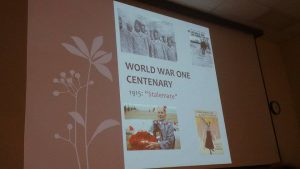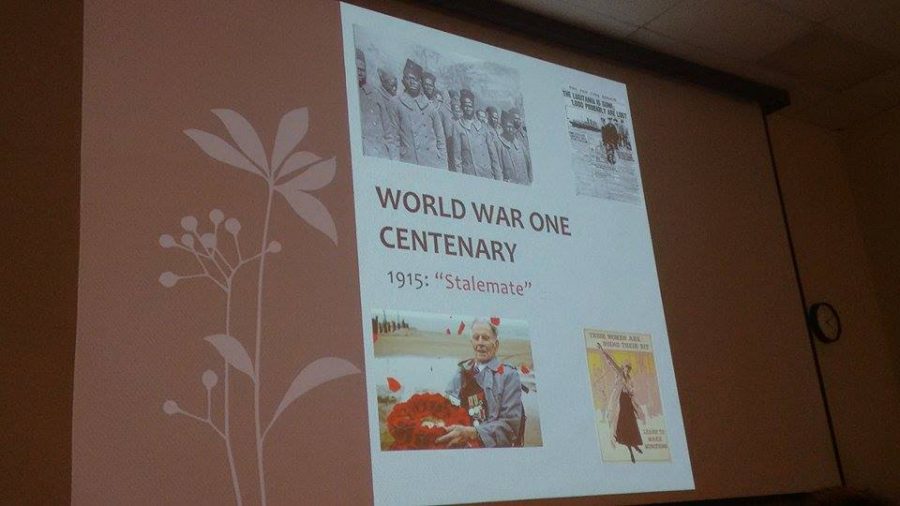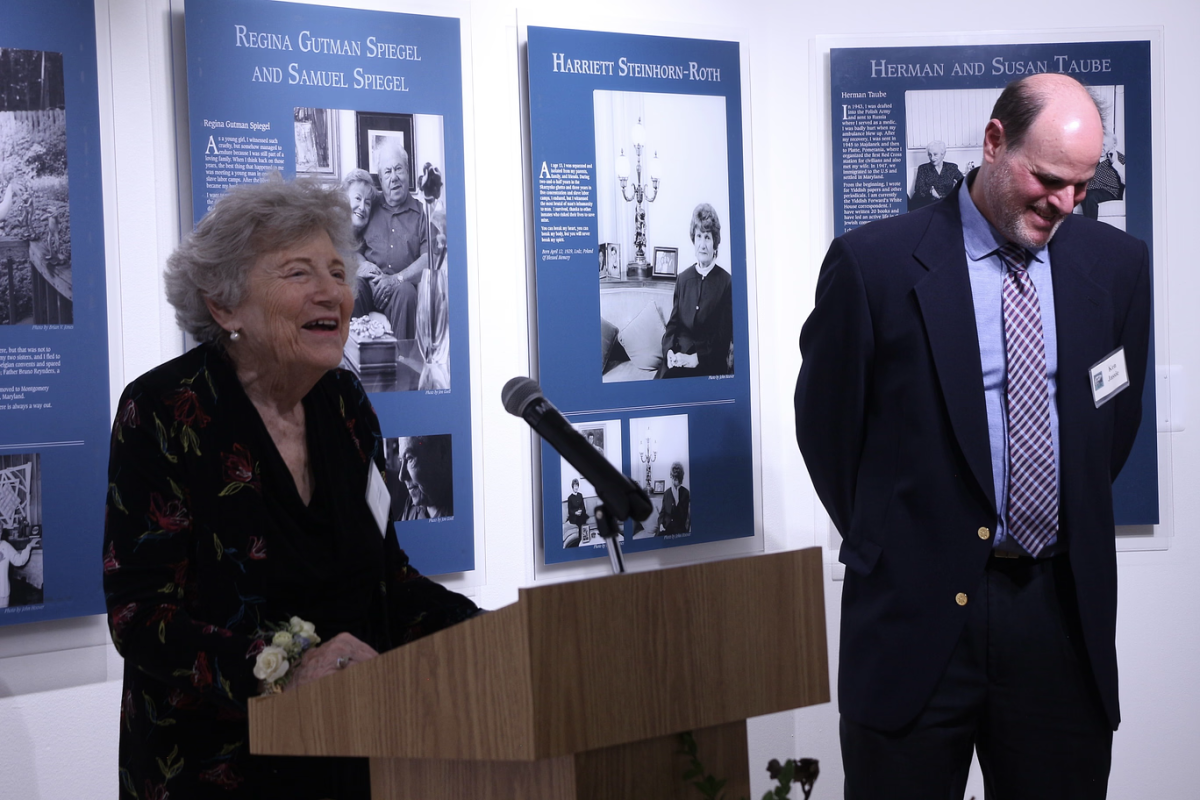 The year of 1915 did not consist of only those at war. There was a battle at the home front as well. The war could be considered a war of attrition and factories had to continue running. But most of the men that ran them were now at war and were not expected home anytime soon. Women were now welcome to work in jobs previously restricted to men.
The year of 1915 did not consist of only those at war. There was a battle at the home front as well. The war could be considered a war of attrition and factories had to continue running. But most of the men that ran them were now at war and were not expected home anytime soon. Women were now welcome to work in jobs previously restricted to men.
Mary Furgol, a history professor on Rockville Campus, spoke on Monday Nov. 9th about World War I. The first in Montgomery College’s new World War I Centenary lecture series.
1915, the second year of World War I, was deemed “The Year of Stalemate.” The lecture began with the impromptu soldier truce on Christmas of 1914, the so called “Battle of the Carols.” Soldiers would start a song, but they would sing it in their own language. Naturally, other soldiers thought their own carols were superior and the battle of the carols began.
Furgol transitions into the year of 1915 by firstly defining stalemate as an inability to take action by the countries at battle. Although not much territory could be gained because of said stalemate, millions of lives were lost. Even though 1915 was a year of stalemate, the point here is that, the year was tragic for the soldiers in battle.
The government also had a duty in the war. Death was a byproduct of the war and the effect it had on the general population was depressing.
Some newspapers previously published all deaths lost in war, but the year of 1915 brought an overwhelming list of those lost at war. Raising morale became a necessary task of government and these deaths were now for the most part censored. Many soldiers would stop including the details of war in their letters home. One soldier wrote that “If [he] thought [he] was going to be in Hell, [he] never would have volunteered.”
Furgol follows up with the new technology World War I introduced. The use of air power on civilians for the first time occurred in 1915. The use of gas warfare in 1915 has become a lasting issue to this day. Gas warfare arises the question of morality, and conferences are still being held over whether or not countries are allowed to use gas at war.
The lecture concluded with the topic of the Lusitania. Furgol clears up a common misconception that the sinking of the British Lusitania brought America into World War I by clarifying that this idea is false. The sinking of the Lusitania, however, did start a new wave of British and German propaganda in America.
Furgol concludes the lecture with the idea of stalemate once again. 1915 was a year lacking in huge military gains of territory. But the loss of millions of soldier’s lives does mean that 1915 was not a year without tragedy.







